
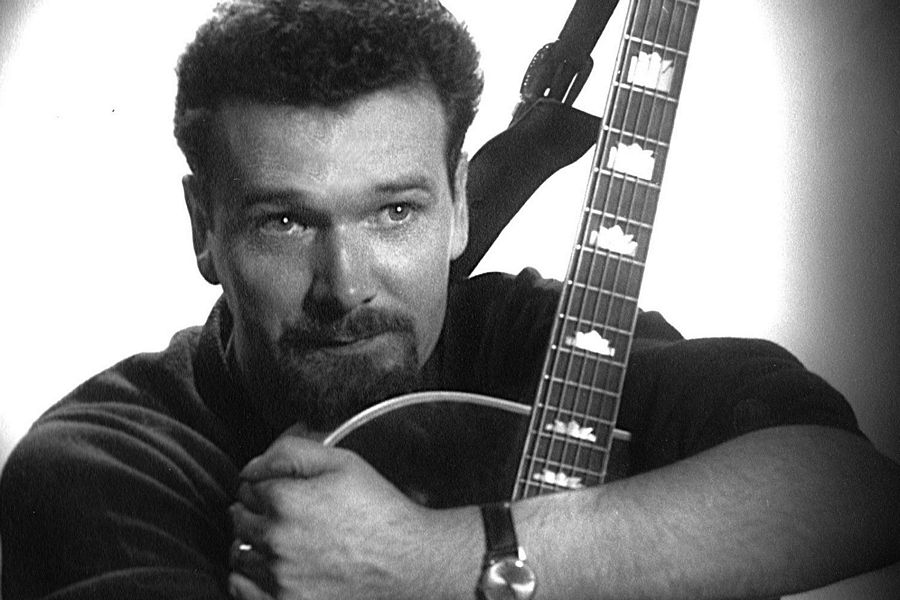
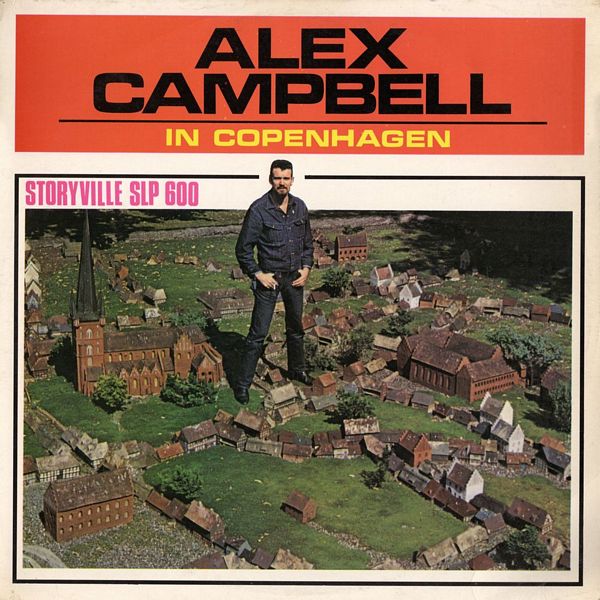 |
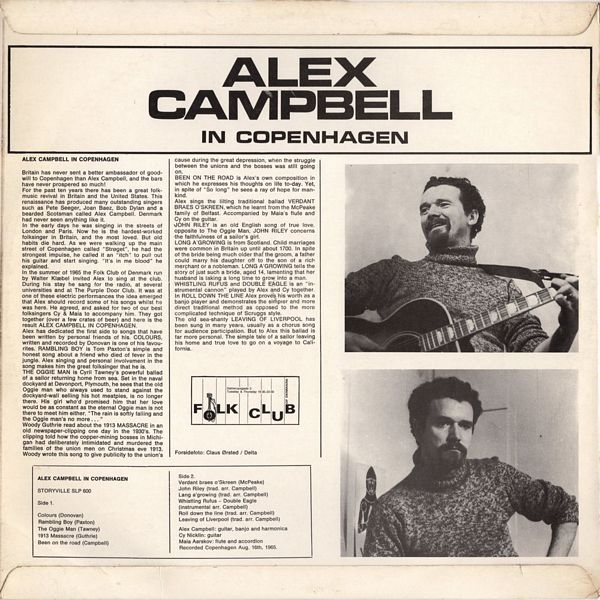
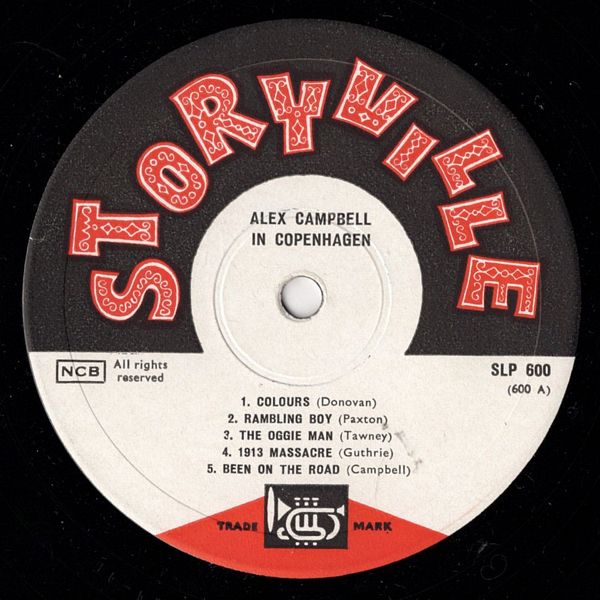
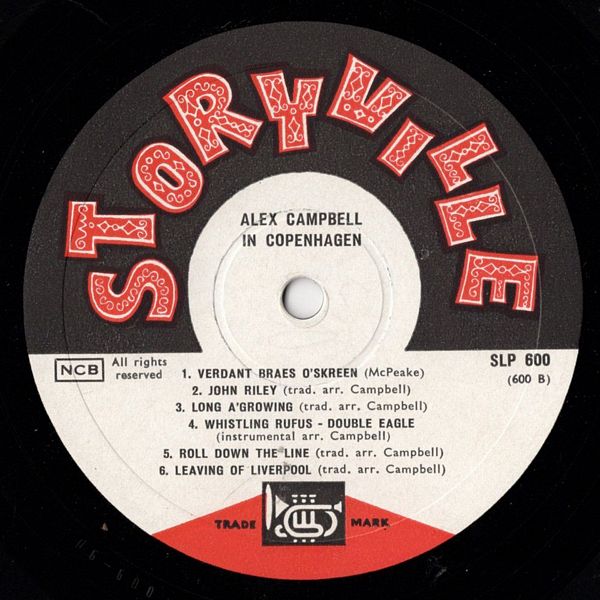 |
Sleeve Notes
Britain has never sent a better ambassador of goodwill to Copenhagen than Alex Campbell, and the bars have never prospered so much!
For the past ten years there has been a great folk-music revival in Britain and the United States. This renaissance has produced many outstanding singers such as Pete Seeger, Joan Baez, Bob Dylan and a bearded Scotsman called Alex Campbell. Denmark had never seen anything like it.
In the early days he was singing in the streets of London and Paris. Now he is the hardest-worked folksinger in Britain, and the most loved. But old habits die hard. As we were walking up the main street of Copenhagen called "Strøget", he had the strongest impulse, he called it an "itch" to pull out his guitar and start singing. "It's in me blood" he explained.
In the summer of 1965 the Folk Club of Denmark run by Walter Klæbel invited Alex to sing at the club. During his stay he sang for the radio, at several universities and at The Purple Door Club. It was at one of these electric performances the idea emerged that Alex should record some of his songs whilst he was here. He agreed, and asked for two of our best folksingers Cy & Maia to accompany him. They got together (over a few crates of beer) and here is the result ALEX CAMPBELL IN COPENHAGEN.
Alex has dedicated the first side to songs that have been written by personal friends of his. COLOURS, written and recorded by Donovan is one of his favourites. RAMBLING BOY is Tom Paxton's simple and honest song about a friend who died of fever in the jungle. Alex singing and personal involvement in the song makes him the great folksinger that he is.
THE OGGIE MAN is Cyril Tawney's powerful ballad of a sailor returning home from sea. Set in the naval dockyard at Devonport, Plymouth, he sees that the old Oggie man who always used to stand against the dockyard-wall selling his hot meatpies, is no longer there. His girl who'd promised him that her love would be as constant as the eternal Oggie man is not there to meet him either. "The rain is softly falling and the Oggie man's no more …"
Woody Guthrie read about the 1913 MASSACRE in an old newspaper-clipping one day in the 1930's. The clipping told how the copper-mining bosses in Michigan had deliberately intimidated and murdered the families of the union men on Christmas eve 1913. Woody wrote this song to give publicity to the union's cause during the great depression, when the struggle between the unions and the bosses was still going on.
BEEN ON THE ROAD is Alex's own composition in which he expresses his thoughts on life today. Yet, in spite of "So long" he sees a ray of hope for mankind.
Alex sings the lilting traditional ballad VERDANT BRAES O'SKREEN, which he learnt from the McPeake family of Belfast. Accompanied by Maia's flute and Cy on the guitar.
JOHN RILEY is an old English song of true love, opposite to The Oggie Man, JOHN RILEY concerns the faithfulness of a sailor's girl.
LONG A'GROWING is from Scotland. Child marriages were common in Britain up until about 1700. In spite of the bride being much older that the groom, a father could marry his daughter off to the son of a rich merchant or a nobleman. LONG A'GROWING tells the story of just such a bride, aged 14, lamenting that her husband is taking a long time to grow into a man. WHISTLING RUFUS and DOUBLE EAGLE is an "instrumental cannon" played by Alex and Cy together. In ROLL DOWN THE LINE Alex proves his worth as a banjo player and demonstrates the simpler and more direct traditional method as opposed to the more complicated technique of Scruggs style.
The old sea-shanty LEAVING OF LIVERPOOL has been sung in many years, usually as a chorus song for audience participation. But to Alex this ballad is far more personal. The simple tale of a sailor leaving his home and true love to go on a voyage to California.